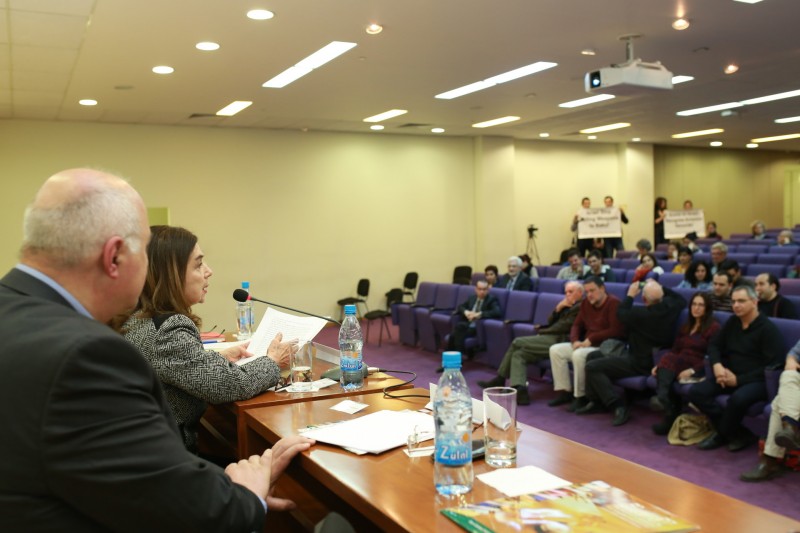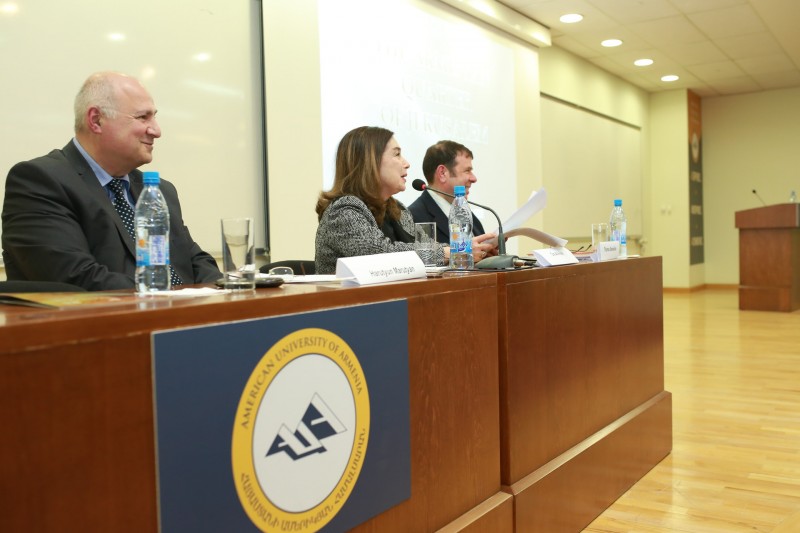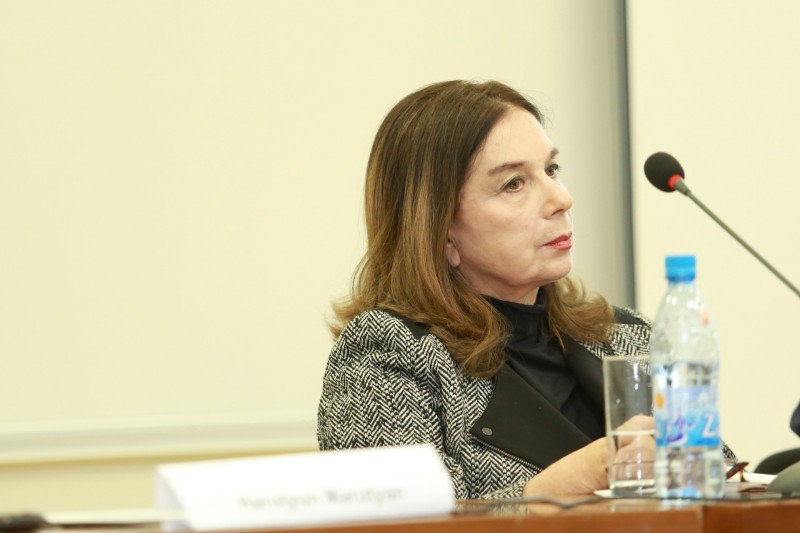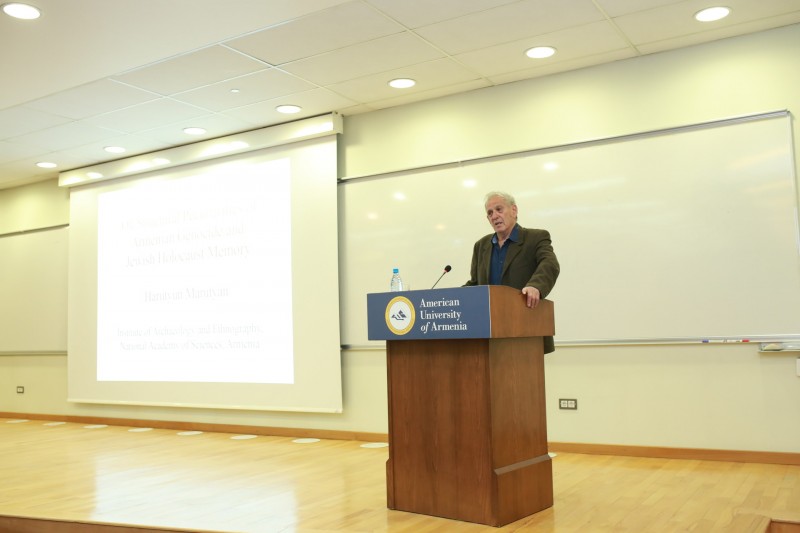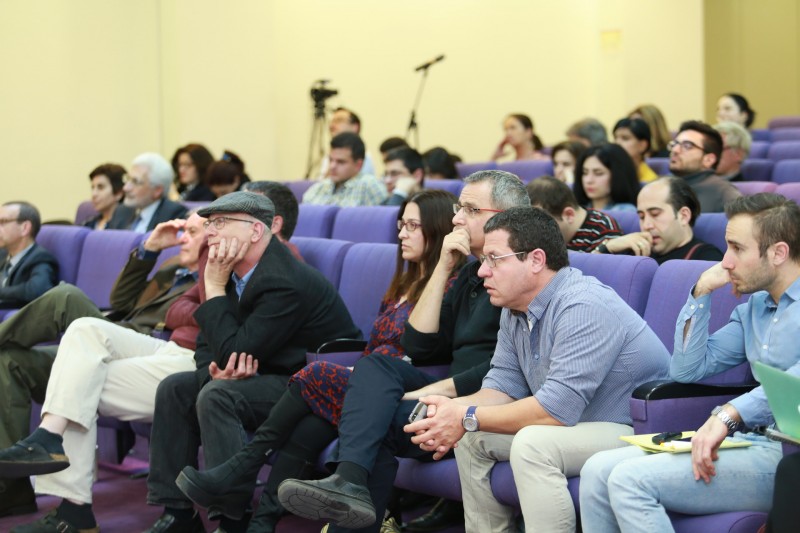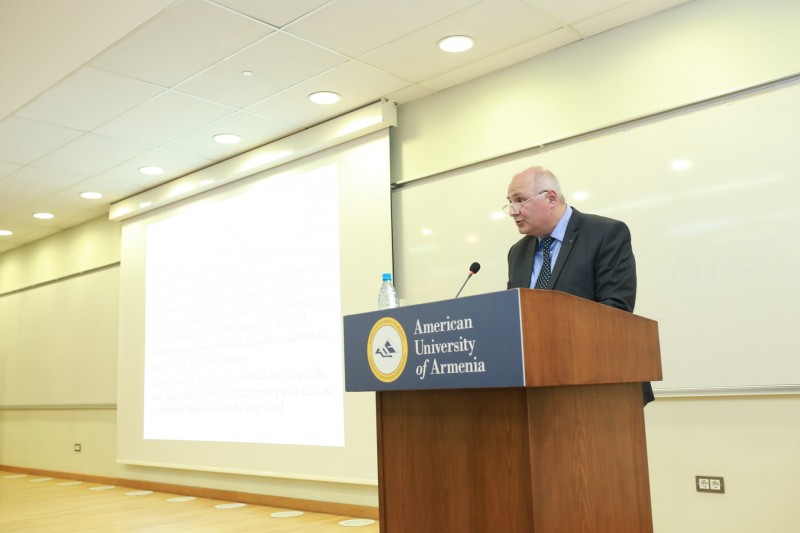
Colloquium on Genocide & Literature: Israeli and Armenian Comparative Perspectives – Day 1
3 min readYEREVAN, Armenia – On April 13th, the American University of Armenia (AUA ) College of Humanities and Social Sciences (CHSS) hosted a two-day public colloquium on genocide and literature with colleagues from Israel. On the opening day, speakers Dr. Harutyun Marutyan and Ora Ahimeir discussed comparative perspectives.
Dr. Harutyun Marutyan is a leading researcher at the Department of Contemporary Anthropological Studies in the Institute of Archaeology and Ethnography, National Academy of Sciences of Armenia, and Visiting Professor of Anthropology at Yerevan State University. Born in 1956, he was educated at YSU (History Department, M.A., 1978) and the Institute of Ethnography, Academy of Sciences of the USSR, in Moscow (Ph.D., 1984). He received his second Ph.D. in 2007 at the Institute of Archaeology and Ethnography in Yerevan. He is an IREX/RSEP (Michigan University, 1998), Fulbright (MIT, 2003-2004), and DAAD alumni (Berlin, 2013) alumnus. In 2009-2010, he was Diane and Howard Wohl Fellow at the Center for Advanced Holocaust Studies, US Holocaust Memorial Museum (Washington, DC).
He is a recipient of the President of the Republic of Armenia Prize (2011) in the nomination of persons having made a valuable contribution to the recognition of the Armenian Genocide for his methodologically innovative research into the continuity of the memory of the Armenian Genocide, and its relationship with the Karabagh Movement.
Ora Ahimeir, is a novelist and editor, founder and former director of the Jerusalem Institute for Israel Studies. She was born in Jerusalem in 1941, and studied Hebrew literature and history and has a diploma in business administration from the Hebrew University of Jerusalem. After working at the Israeli embassy in London, and later as attaché for women’s affairs at the Israeli embassy in Washington DC, she was the coordinator of the Prime Minister’s Commission on the status of women in Israel. Ahimeir was one of the founders of the Jerusalem Institute for Israel Studies, and served as its director for 31 years, until 2010. She also initiated and was the editor of many research books and publications on Jerusalem and other subjects, both in Hebrew and in English. Ahimeir is active in public committees for social, cultural and educational causes. In 2011, she received an Honor Citation from the city of Jerusalem for her contribution to the city. Her novel “Bride”, has been awarded the Book Publishers Association’s Gold Prize (2014).
Her new Hebrew novel on the Armenian genocide, in which she spoke in great detail during the discussion, is due in October 2016.
The event was accompanied with AUA students protesting silently about Israel’s weapons sales to Azerbaijian, in addition to official recognition of the Armenian Genocide by the Knesset. The protest was received well by the Israeli scholars who were unanimously in-concurrent with the students, as well as AUA visiting Professor and primary organizer of the colloquium Yair Auron.
Professor Auron has served as the head of the Department of Sociology, Political Science and Communication at the Open University of Israel. Auron received his MA from the Hebrew University and his Ph.D from the Université de la Sorbonne Nouvelle. He has been a strong advocate of raising awareness of the Armenian Genocide in Israel and has published a series of books in Hebrew and English on various major cases of genocide, including one on the Armenian Genocide earlier this year. As part of his time at AUA, Professor Auron has been making visits to other institutions around Armenia, including the UWC Dilijan College, where he gave a lecture on genocide to the students, academic staff, and Dilijan locals.
The video of the discussion can be viewed at: https://www.youtube.com/watch?v=UlP49GergJ0.
Founded in 1991, the American University of Armenia (AUA) is a private, independent university located in Yerevan, Armenia and affiliated with the University of California. AUA provides US-style education in Armenia and the region, offering high-quality, graduate and undergraduate studies, encouraging civic engagement, and promoting public service and democratic values.

